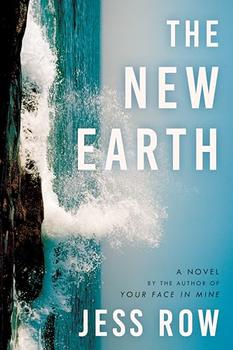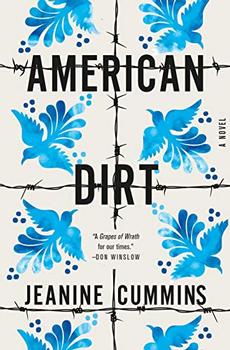Summary | Excerpt | Reading Guide | Reviews | Beyond the book | Read-Alikes | Genres & Themes | Author Bio

A novel
by Valeria LuiselliLost Children Archive is a feast of language and storytelling that chronicles a family road trip from New York City to Arizona. Valeria Luiselli's several storylines follow the geographic trip and also examine this family's past and their implied future. The novel gains scholarly depth with details of indigenous history and a legacy of shifting borders and past migrations. That said, the book is not a simple travelogue, but a meandering literary feat with several interior twists and turns.
In this first-person narration, language itself is an event, each page brimming with a rich alchemy of fact, fable, and the narrator's quest to make sense of life. Somewhere speeding along a highway in Oklahoma or Texas, she notices: "Lightning strikes so close you don't know if it comes from outside or from inside you, a sudden flash illuminating the world or the nervous mess in your brain, cell circuits igniting in incandescent, ephemeral interactions."
Early in the book, we learn that the narrator is no longer being supported on the sound-recording journalism project where she and her husband had first met and worked together. Yet, her husband is taking the project in a new direction, recording sounds from ancient Apache tribal lands. He is passionate about the history of the Apache people, especially heroes like Geronimo and Cochise. His quest to record echoes of the Apache in their lost territory controls much of the family travel itinerary. This blended family consists of the narrator and her five-year-old daughter, and her husband and his ten-year-old son. They're never named directly but anoint themselves with nicknames: the father becomes Papa Cochise, his son is Swift Feather, the mother is Lucky Arrow, and her daughter, Memphis.
While Papa Cochise is preoccupied with sound recordings, Lucky Arrow imagines where to find her friend Manuela's lost daughters, who have disappeared from a migration detention center in Texas. One morning, their own children vanish from their family holiday cabin in Arizona, and the parents drop everything in a desperate search to find them.
The title's metaphor is at one layer obvious – there are currently over a thousand missing or detained migrant children somewhere in America, not to mention many more thousands elsewhere on the globe. Other subtle variations of being lost resonate deeply and are explored with heartbreaking clarity by Luiselli. Being lost in a marriage, being lost from one's own ancestral history, grieving a lost culture, or one's own lost childhood. Children have gone missing throughout history, whether deported, conscripted into war, sent to internment camps, recruited by gangs, kidnapped, abandoned, or separated from their friends and families – all ultimately forced to cope on their own. To survive and to tell their own survival stories. Or to die and be left to the collective imagination of survivors and storytellers.
Short chapters juxtapose past with present, personal with political. This family is not native to the United States, and when they're stopped by traffic cops, tensions escalate. There are traces of marital tension as well, hints that in fact, this may be their last trip together:
What there was, along highways and across thunderstorms, was my husband, drinking his coffee silently or talking to the children as we drove. Sometimes my wish for all this to end, and to get as far away from him as possible. Other times, my desire, trailing after him, hoping he might suddenly change his mind, tell me that he'd drive back to New York with us at the end of the summer, or ask me to stay with him and the boy, say he could not let me and the girl go.
Luiselli is a master storyteller, braiding many strands of past, present, fable, and future together in a wildly successful pattern. When Swift Arrow and his little sister Memphis go missing, the narrative point of view shifts from the mother to the son, who claims the power with his own first-person account and tells the story of how the siblings take off on a mythical quest with potentially fatal consequences. I found this shift abrupt, and I anticipated equivalent first-person accounts from Papa Cochise and Memphis, but this never happens. Luiselli's risky structure pays off, with a reliable, inquisitive child narrator. He notes the details of the journey so as remind his sister about this someday. He also creates a series of Polaroid photos (see Beyond the Book) to document their misadventures:
We walked in silence for a while, the way street dogs walk together like they're on a mission, the way all dogs walk in packs like they're on a mission. We weren't a pack, it was just you and me, but it still felt like that, and I howled like a dog-wolf, and you howled back at me, and I knew we were going to have fun on our own.
Lost languages, lost tribes, lost children – Luiselli would have us not merely remember them, but to care for them before any more disappear. Each missing child, each border crosser is a story, a person – not simply a statistic.
Valeria Luiselli is a prizewinning author who was born in Mexico City. She has volunteered as a translator for unaccompanied child migrants appearing before the Federal Immigration Court in New York City, where she lives. At the end of Lost Children Archives, she provides notes about sources. The publisher offers an online reader's guide which will spark lively conversations in book clubs and academic settings.
![]() This review was originally published in The BookBrowse Review in February 2019, and has been updated for the
February 2020 edition.
Click here to go to this issue.
This review was originally published in The BookBrowse Review in February 2019, and has been updated for the
February 2020 edition.
Click here to go to this issue.

If you liked Lost Children Archive, try these:

by Jess Row
Published 2024
A globe-spanning epic novel about a fractured New York family reckoning with the harms of the past and confronting humanity's uncertain future, from award-winning author Jess Row

by Jeanine Cummins
Published 2022
Hailed as "a Grapes of Wrath for our times" and "a new American classic", American Dirt is a rare exploration into the inner hearts of people willing to sacrifice everything for a glimmer of hope.
A truly good book teaches me better than to read it...
Click Here to find out who said this, as well as discovering other famous literary quotes!
Your guide toexceptional books
BookBrowse seeks out and recommends the best in contemporary fiction and nonfiction—books that not only engage and entertain but also deepen our understanding of ourselves and the world around us.